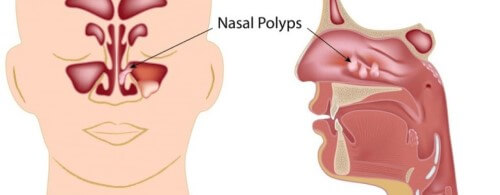Is Hormone Imbalance the Cause of Autoimmune Disease?
Hormone imbalances, thyroid problems and autoimmune diseases can be closely linked and may occur together. A common question asked by patients who visit ENT consultants about these issues is whether one of them might have caused the other.
Thyroid Disorder vs. Autoimmune Disease
Thyroid disorders that cause hormone imbalances can cause very similar symptoms to some autoimmune conditions so it can sometimes be difficult to tell the difference. Both can cause issues such as unexplained weight loss and fatigue. Many patients end up visiting ENT consultants after noticing symptoms that they didn’t realise were connected to their thyroid hormones.
In some cases, thyroid problems and autoimmune disorders can occur together. The way that autoimmune diseases start isn’t fully understood yet so it can be difficult to identify what has caused it. However, we can sometimes connect autoimmune diseases to hormone imbalances in the thyroid in the opposite direction. Some of the most common thyroid problems occur as a result of autoimmune diseases. Thyroid hormone imbalances are therefore more likely to be an effect of autoimmune diseases rather than the cause.
Hashimoto’s Thyroiditis
Hashimoto’s thyroiditis is one of the most common thyroid disorders in the UK. It is caused by an autoimmune disorder that can make your immune system attack the thyroid gland. The thyroid gland isn’t able to produce as much of the thyroid hormones as usual because its cells have been damaged. This causes an underactive thyroid or hypothyroidism.
The symptoms of Hashimoto’s thyroiditis can include fatigue, unexplained weigh gain, muscle aches and digestive problems. We don’t yet have a treatment that can stop the autoimmune attack or repair the damaged cells in the thyroid gland but your ENT consultant can still provide treatment to relieve the symptoms. You can be prescribed pills to restore your thyroid hormones to the correct level. You will need to keep taking these in order to maintain the effects.
Graves’ Disease
Graves’ disease is another thyroid disorder that is caused by an autoimmune problem but it has the opposite effect on your hormone levels. Graves’ disease is a common type of hyperthyroidism, which means that your thyroid gland is overactive and produces too much of the thyroid hormones. The increase in hormone production occurs because your body starts to produce antibodies that stimulate the thyroid gland. The antibodies bind to receptors on the thyroid cells that are usually there to receive signals when your hormone levels are too low. This results in the thyroid gland remaining active even when your hormone levels are higher than normal.
Symptoms of Graves’ disease can include unexplained weight loss, irritability, sweating, and heart palpitations. The thyroid gland can also become enlarged so there may be some swelling in your neck. If the thyroid grows large enough then it can cause problems when you are swallowing.
The treatments that your ENT consultant can provide for Graves’ disease can help to relieve these symptoms. You may be given medication to reduce the amounts of thyroid hormones being produced or to inhibit their effects on your body. Other treatment options can include using radioactive iodine to eliminate some of the overactive cells in the thyroid or removing part of the gland surgically.
Getting Treatment for Thyroid Disorders
Even the experts still have a lot of unanswered questions about autoimmune disorders and why they happen. We know that some people are more likely to be affected by autoimmune diseases than others but we still can’t predict exactly who will be affected. We also don’t know what triggers the autoimmune problems to occur. The immune system changes for some reason and starts to attack the cells of your own body or to interact with it in a harmful way.
However, we do understand enough about the way that certain autoimmune disorders affect the body in order to be able to manage them effectively. An ENT consultant can easily diagnose autoimmune conditions that affect the thyroid gland such as Hashimoto’s thyroiditis and Graves’ disease. We also have plenty of different treatment options to manage the effects of these conditions. Although we can’t yet cure these autoimmune disorders we can limit their impact on your health and quality of life.














